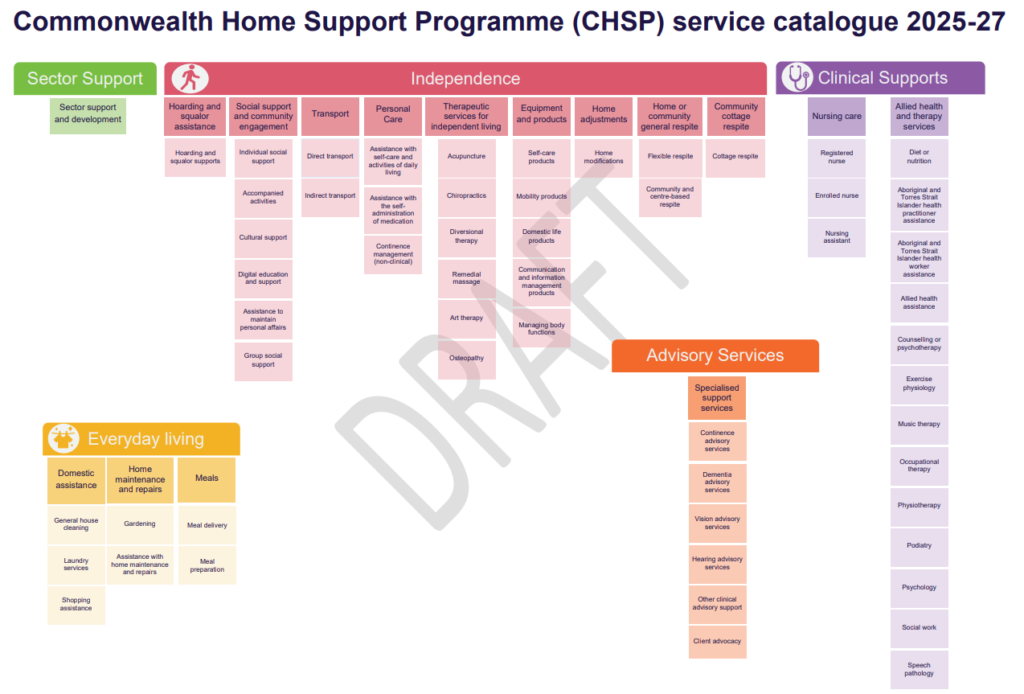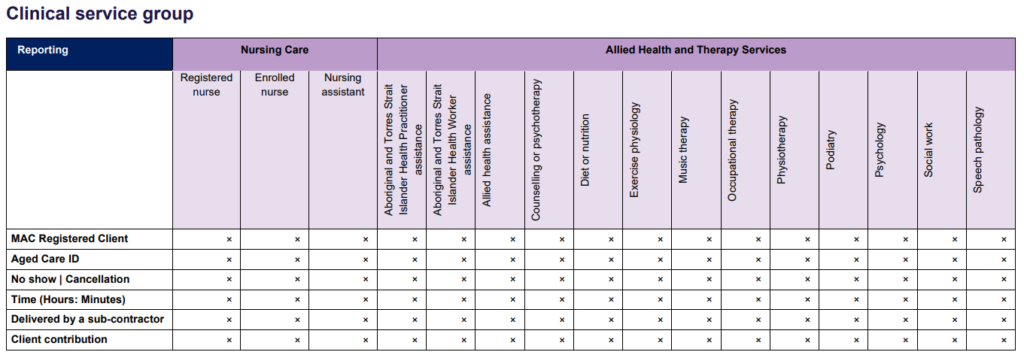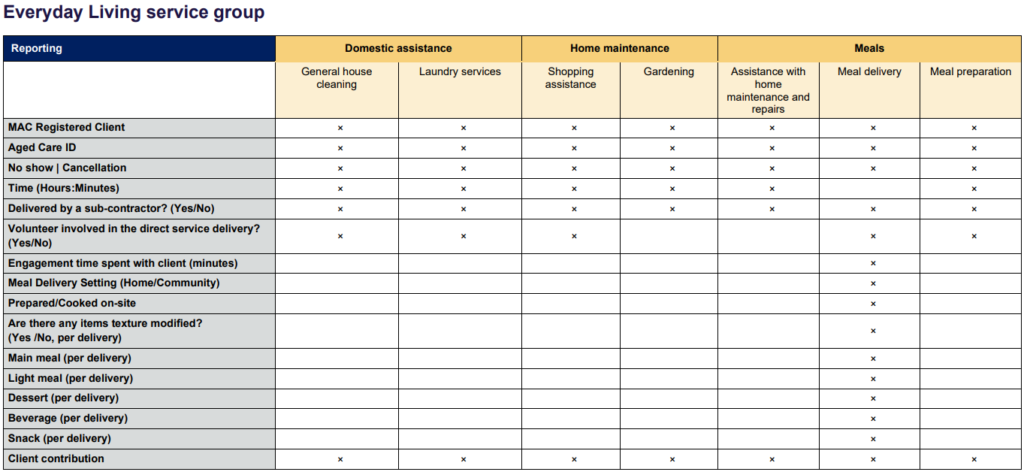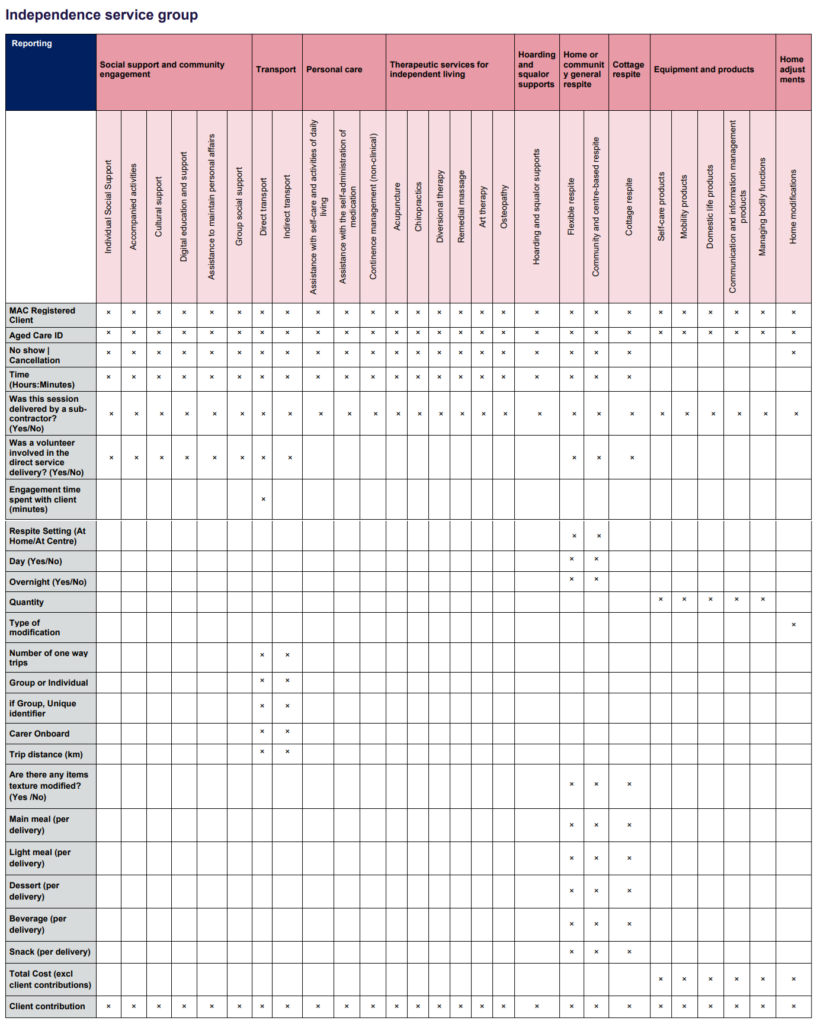
The Australian Government is set to implement significant changes to the Commonwealth Home Support Programme (CHSP) Data Exchange (DEX) reporting requirements, effective from 1 July 2025. These modifications aim to enhance service alignment, improve data accuracy, and ensure that older Australians receive high-quality, consistent care.
Providers must accurately report services delivered in accordance with their registration category and CHSP grant agreement. This includes detailed reporting on service types, outputs, and client interactions. Failure to submit the mandatory monthly DEX performance report may affect the release of subsequent payments.
Below are some of the key DEX Reporting changes CHSP providers need to be aware of.
Mandatory Use of My Aged Care ID
From 1 July 2025, all clients receiving CHSP services must have a My Aged Care ID. Providers are required to record and report services delivered against each client’s My Aged Care ID in their monthly DEX submissions. This measure ensures that services are provided to assessed and eligible individuals, enhancing program integrity and compliance.
Changes to Service List Reporting
DEX will be updated to reflect a standardised service list across all in-home aged care programs. This includes new service type names and descriptions, requiring providers to align their reporting with the revised terminology. For example, the meals service type will now encompass ‘meal delivery’ and ‘meal preparation,’ consolidating previous categories. The new hierarchy includes:
- Service Group Level: Categories such as clinical services, independence support, everyday living assistance, advisory services, and sector support.
- Service Type Level: Specific services like domestic assistance or meals.
- Service Level: Detailed services such as general house cleaning, laundry, shopping assistance, meal delivery, and meal preparation.
Consolidation of Meals and Food Services: The meals service type will be streamlined to include:
- Meal Delivery: Combining previous ‘Meals at Home’ and ‘Meals at Centre’ services.
- Meal Preparation: Integrating ‘Food Preparation in the Home’ and other related food services. This consolidation aims to simplify service categories and improve reporting accuracy.
Introduction of Social Support and Community Engagement Service Type: A new service type, ‘Social Support and Community Engagement,’ will encompass services that facilitate social connections and community participation. This includes:
- Assistance with social interactions, both in-person and online.
- Visiting services, telephone, and web-based check-ins.
- Accompanied activities, such as support to attend appointments.
- Support to engage in cultural activities for diverse populations. This new category consolidates services previously under ‘Social Support Individual,’ ‘Social Support Group,’ and certain ‘Client Advocacy’ services.

Enhanced Data Collection for Specific Services
Additional reporting fields will be introduced for services such as meals, transport, and respite. Providers will need to capture data on aspects like:
- Number of one-way trips per person, including trip distance and time traveled.
- Details of meals delivered, including subcategories (e.g., texture-modified meals) and whether the service included social engagement or was a ‘drop & go’ delivery.
- Instances of no-shows or cancellations.
- Whether a volunteer or sub-contractor delivered the service. These enhancements aim to provide a more comprehensive understanding of service delivery and client engagement.



What can Providers do to prepare for the changes
These changes are designed to enhance the clarity and consistency of services provided under the CHSP, ensuring that older Australians receive high-quality, standardised care tailored to their assessed needs. Providers are encouraged to familiarise themselves with the new service list and adjust their reporting and service delivery practices accordingly.
- System and Process Updates: Review and update internal systems, business processes, and policies to accommodate the new reporting requirements. This may involve IT system modifications and staff training to ensure compliance.
- Client Registration: Assist existing clients who may not have a My Aged Care ID to register before the implementation date. The Department of Health and Aged Care will collaborate with providers during the 2025-2027 grant period to facilitate this process.
- Staff Training: Educate staff about the upcoming changes, emphasizing the importance of accurate data collection and reporting. This includes understanding the new service list terminology and additional data fields.
- Communication with Clients: Inform clients about the changes and reassure them that services will continue. Transparency will help maintain trust and ease the transition for clients.
By proactively addressing these changes, CHSP providers can ensure a smooth transition to the new reporting framework, ultimately contributing to the delivery of high-quality care for older Australians.
Need Help Automating DEX Reporting or navigating these DEX Reporting Changes? Let Us Help
CHSP providers are tasked with upholding a great quality of care for their clients. And Brevity Care is there each step of the way. Brevity Care software was built from the ground up to be an industry-specific tool that empowers CHSP providers to streamline their business operations and to simplify DEX reporting.
To speak to our consultants, contact us here.



